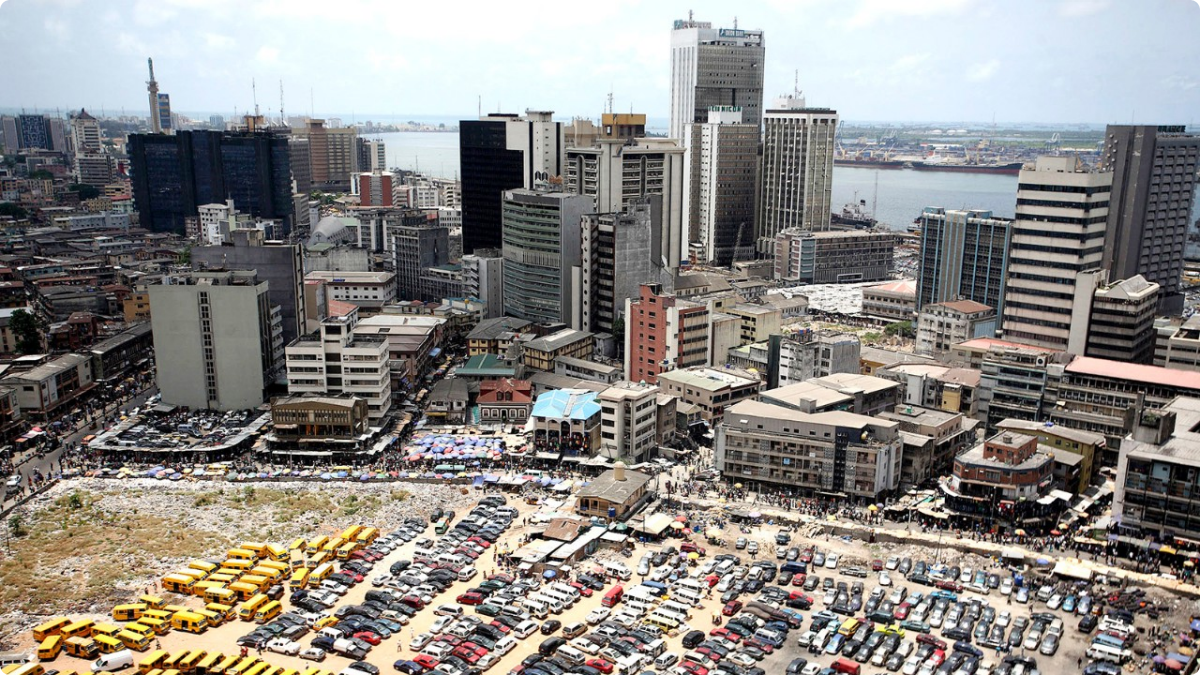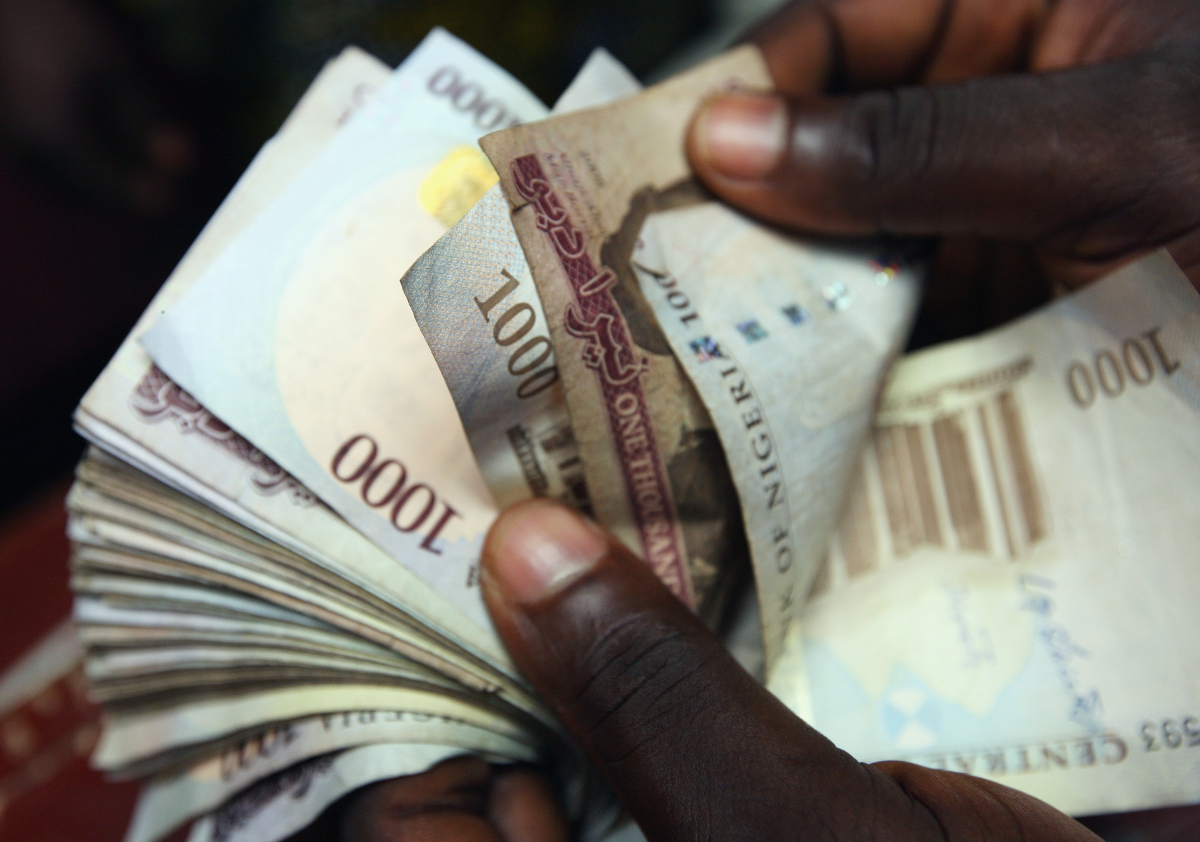Nigeria is Africa’s biggest economy and still one of the world’s fastest growing markets, thanks to a booming economy boosted by the thriving sectors of communications technology, banking and Nollywood.
The country became Africa’s largest economy in 2014.
Nigeria has also become Africa’s top destination for foreign direct investment, with inflows now no longer just concentrated on the oil and gas industry.
Multinationals are also pouring in millions of dollars to expand production, shrewdly tapping into the rich consumer market of the expanding middle classes of Lagos and Benin.
Newcomers, Procter & Gamble and Nissan are also wading in, investing in manufacturing and assembly plants, while General Electric is investing in power.
However, Nigeria’s spectacular growth has been somewhat checked in the last 12 months by the threat of the Islamist Terrorist group Boko Haram.
But there is no doubt that Nigeria has arisen and Boko Haram will be defeated.

Many experts in Africa believe the appearance of Boko Haram as a strong threatening criminal gang has a lot to do with Nigeria’s newfound success. There is ample evidence in Africa’s history where the west, especially through the machinations of America’s CIA has overthrown strong leaders in Africa who were, by all intents and purposes, leading their states to economic advancement.
More notable is Kwame Nkrumah whose overthrow was overseen by G. W. Bush Sr. when he was the director of the CIA in 1966. Patrice Lumumba, Thomas Sankara, Muammar Gaddafi are a few others who suffered the brutal paternalism of western encroachment on African self-determination.
Boko Haram is just another Charles-Taylor introduction into West Africa in the same way that several military coups in Africa have toppled democratically elected governments only to implant western backed popular governments in Africa who are bent on slavishly serving the interests of western nations.
Large-scale attacks, including the abduction of over 200 schoolgirls last year, has taken its toll on local businesses in the traditional northern states in Nigeria, where the terrorist group has gained most ground.
Currently, the three northern states of Adamawa, Borno and Yobe are under a state of emergency due to the increasing violence.
The local chamber of commerce estimates that business activity in Kano has dropped by 80% over the past three years.
Sa’id Dattijo Adhama, the owner of a textile business in the city of Kano, says: “Lots of projects are being cancelled in the region because people are frightened.
“They are scared that factories can become targets; commuters to work can also become targets; and this is impacting everyone here.
“Lots of women here normally work part-time or sometimes full-time. They cannot anymore. It is too dangerous for them – even the employers do not want to hire them.
“So, families are suffering – they might have had two incomes before, now they only have one.”
The people of Nigeria have fought back Boko Haram, enlisting the help of Cameroon, Chad and Benin. Many Africans who have also become tired of western interference in Africa have also become enamored by the cause to eradicate Boko Haram in Nigeria.
There are stories of Africans travelling by foot from Gabon, Niger, Togo, Sudan and Uganda to join forces in the fight against Boko Haram.
Luckily, the only economic impact the group has had so far is in slowing down production in the regions that are not yet impactful on the Nigerian economy.
Like the USA and many nations in the EU, Nigeria has also not been exempt from corruption and the concentration of wealth in the hands of a few. Many African analysts feel that the spoils of growth and prosperity which is concentrated at the top has since left nearly 50% of the population living below the poverty line, according to the Nigerian Bureau of Statistics.
That trend must be reversed at all cost.
Furthermore, many in Nigeria who have also suffered war in the past, also due to western imperialism, in the south of the country, feel inane to the threat of Boko Haram – while they feel empathy, they hope it remains confined to the north.
There is no doubt that the rise of terrorist Islamic militancy has come at a time when the price of oil has dropped to $55 a barrel, posing a threat to Nigeria’s sustained economic growth.
The economic divide between the two regions, if superficial before, is now very much entrenched.
But David Ladipo, managing director of energy company Azura Power West Africa, says: “We’re diversifying now. Non-oil sector growth is 7% – Nigeria’s infrastructure is changing and foreign investors are not deterred.
“My business focuses on the electricity sector and I don’t have problems with foreign investors despite it being an ambitious venture.”
“The north-eastern states make up a small fraction of Nigeria’s economy,” says Jon Ashbourne, Africa economist at Capital Economics.
“Estimates say those affected states account for 7% of the economy, and Boko Haram is only active in a portion of those states.
“Whereas oil accounts for 90% of Nigeria’s exports and over three-quarters of government revenue. So the falling price of oil has meant that government spending has had to be cut back.”
The oil price fall may have also led to the devaluation of the Nigerian currency, the naira, which fell 7.5% against the dollar last year.
“The currency weakening is also worrying,” says Mr Ashbourne. “Nigeria imports lots of goods, including fuel and food, so the cost of the essentials will increase.”

Still, the US and the EU are hard-pressing the Nigerian government to further weaken her currency.
Boko Haram is threatening to bring its insurgency to Lagos and the oil fields of the Niger Delta – the southern regions that drive the economy. Growth could suffer significantly if militants succeed in bringing mayhem to Lagos, economists fear.
As poverty persists across the country, the number of Nigerian millionaires will jump by 41% over the next two years, say analysts at the Volta Times.
Last year, whilst attacks accelerated in the central city of Abuja, the World Economic Forum still held its meeting there, just weeks after the schoolgirls went missing.
And in Lagos, start-up incubators, fancy cafes and luxury car dealerships continue to multiply across the city.
Nigeria has arisen and Boko Haram will be defeated.
“We feel for our fellow countrymen, of course,” says Mr Ladipo. “And it saddens me every time I hear about another attack.
“But this country is still an attractive market for businesses both large and small around the world. The evidence is clear.”
Nigeria has arisen and Boko Haram will be defeated.
Boko Haram will be defeated and another western machination to topple a prosperous African nation will invariably and inevitably be put to bed once again.
This is Africa.










